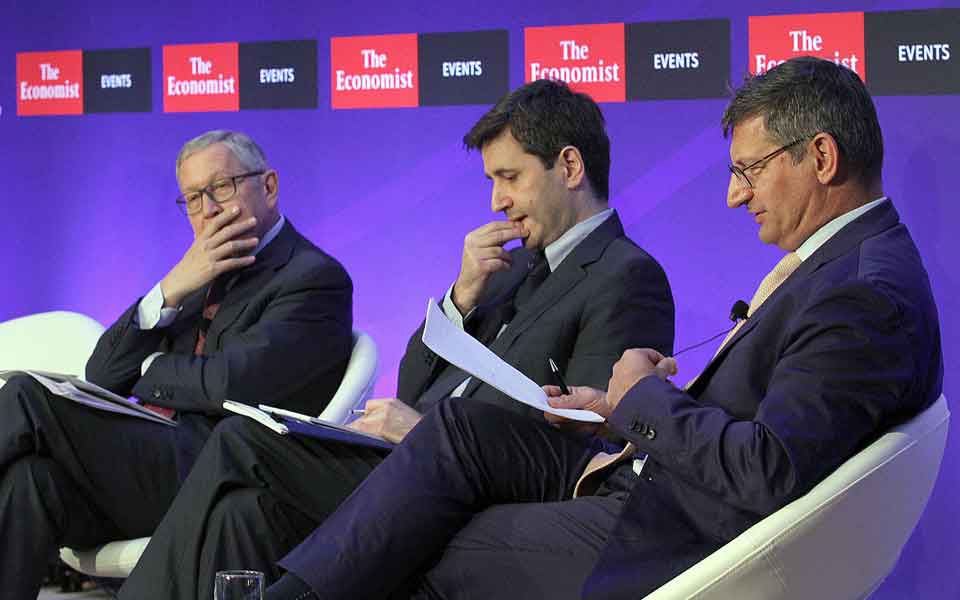No market passport from the IMF

Eurozone authorities are seeking ways to offset the International Monetary Fund’s abstention from the Greek program, as it again became apparent on Friday that it will be particularly difficult for the IMF to unreservedly issue Greece with a passport to the money markets.
Philip Gerson, the deputy director of the Fund’s European Program, cited a series of problems while speaking at an Economist Conference in Attica on Friday: The Greek debt is not sustainable, the growth rate is disappointing, the Greek demographics are “poor” as the country’s population will shrink by a third, and local banks – much as they have done for their streamlining – will continue to face problems.
He also likened Greece to a marathon runner “who just has to keep moving even though he may have got tired.”
Now eurozone officials are examining their options for softening the impression about a not-so-daring solution for the Greek debt, ahead of the decisive Eurogroup meeting next Thursday.
The cash buffer is one of the elements of the post-bailout shield as it will secure the liquidity Greece needs for the next one or two years without having to tap the markets, European Stability Mechanism (ESM) chief Klaus Regling told the conference at Lagonissi on Friday, “as that would appease investors.” Alternate Finance Minister Giorgos Houliarakis added that it is estimated the cash buffer will come to 17-18 billion euros.
Crucially, Regling issued the message that the ESM – and therefore the eurozone in general – “will not abandon Greece” once the program is over. If the need arises, “Europe is ready to assist in the long term,” the German official noted, adding that “solidarity does not end in August,” and “we cannot resolve everything at this stage.” He went on to stress that the time when the loans will be paid off is more than four decades away, in 2059.
In other words, as a eurozone official said on the sidelines of the conference, the solution to the debt issue at the June 21 Eurogroup may not be very bold, but that should not cause concerns as Europe will take care of Greece.





